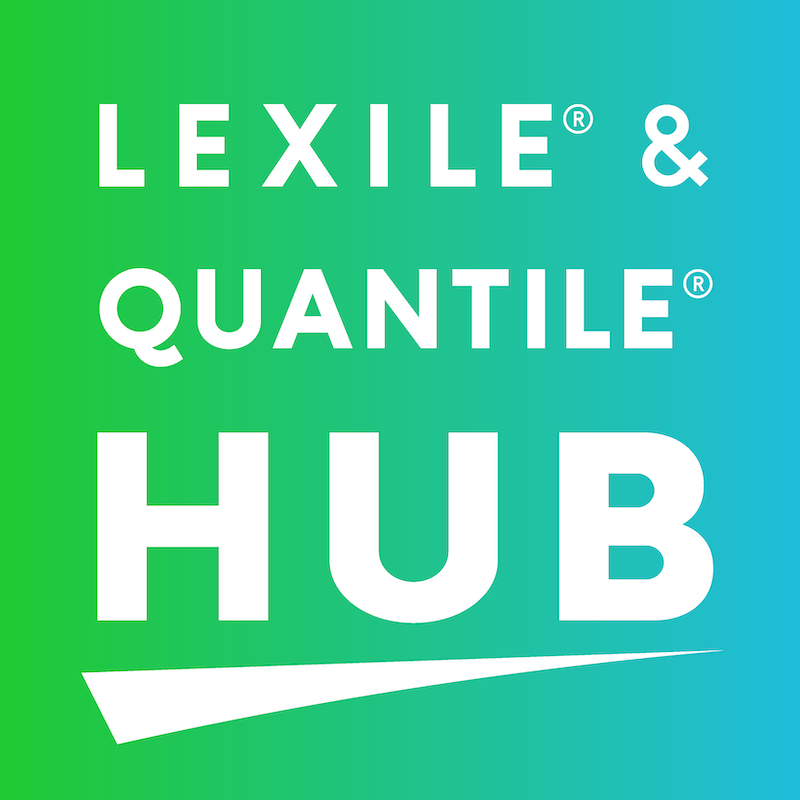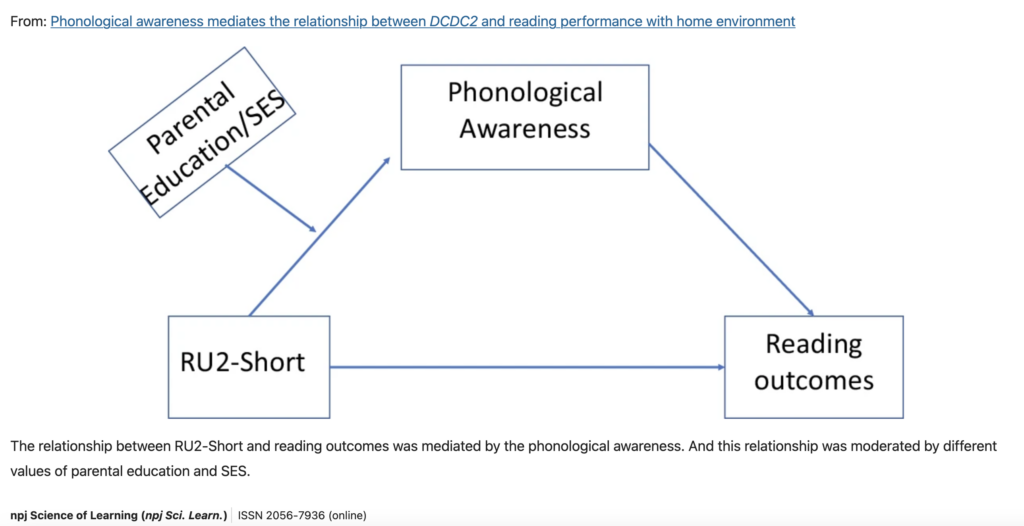 Welcome to the Reading Research Recap!
Welcome to the Reading Research Recap!
I am Dr. Neena Saha, Research Advisor at MetaMetrics and founder and CEO of Elemeno, now a part of MetaMetrics. My focus is to bridge the research-practice gap so that educators can access real-time tools to support reading success. To expand the understanding of research to inform teaching and learning strategies, I put together this monthly compendium of the relevant and must-read research that impacts the reading and learning landscape. I offer research highlights in digestible summary slices. Hopefully, the data and findings you see here are useful to you as researchers, educators, and district and edtech leaders.
Happy summer!☀️🏖️😎
Hi all! Happy July! It’s summer vacation woo-hoo!! (unless you have year-round school, like my son does). But, for most people, it is summer vacation so I wanted to cover a different type of paper that does not have direct classroom implications — one on home literacy environment and genetics!! Teachers have very little influence on these variables, but they are fascinating and definitely contribute to reading success!
First, a Recap of Recaps! ✏️📹📚
Before I deep dive into this month’s research, I wanted to do a recap of the Recaps. This is the first full school year with blogs in the video style (vlogs). Since last July we have covered a wide variety of topics: sound walls, decoding, decodable books, fluency, background knowledge, comprehension strategies, and sustained silent reading. We also covered different types of rigorous research with 5 Meta-Analyses (or systematic reviews) and 3 randomized controlled trials or experiments. Here they are linked below and remember there is always the written blog that is packed with tons more useful information than I can cover in the videos!
- July 2023: Comprehension Strategies
- August 2023: Decodable Books: A New Meta-Analysis
- September 2023: Comprehension: Content Knowledge for Adolescents
- October 2023: The Role of Teacher Knowledge on Student Outcomes
- November 2023: Sound Walls & Phonics Instruction
- December 2023: Decoding vs. PA Instruction vs. Letter-Sound Instruction
- January 2024: Sustained Silent Reading
- February 2024: Activating Background Knowledge
- March 2024: Fluency: Reader’s Theater & Continuous Reading
- April 2024: Comprehension: How to Build Background Knowledge
- May 2024: Fluency & Instructional Level + The Reading League Summit
- June 2024: Small Group Instruction in Kindergarten
Judging by the number of views, I think the audience favorite was this one on sound walls. My favorite 😍 is still this Bayesian Network Meta-analysis on Comprehension Strategies.
Ok, onto Genes! 🧬🏡
This fascinating paper examined the interplay between home environment, genes, and phonological awareness on reading skill.
One of my majors in college was biology, but that was nearly 20 years ago (!), and so even I had to brush up on basic bio.
Quick Primer on Biology
- In the nucleus of nearly every cell in your body, you have DNA tightly coiled into chromosomes.
- On these chromosomes, you have stretches of DNA called genes.
- You get your genes from your parents and random mutations that occur.
- Different forms of a gene are called alleles and different alleles can lead to different proteins being made, which can lead to differences in development outcomes.
- But, (and this is a really important “but”!) genes are influenced by the environment and interactions with the environment can turn genes on and off.
Rationale
- There are about 18 genes associated with reading skill.
- But, only 8 genes have been replicated 3x or more in studies.
- And; only 2 genes are on the region that has been most associated with reading skill (and area on chromosome 6, band 2).
- DCDC2 is one of the genes located in that region that these researchers looked at.
- And, more specifically; they looked at the version/variant/allele of the DCDC2 gene known as RU-short. It is named that because it contains fewer (shorter) elements of the Regulatory Unit).
Sample & Measures
- 1,419 African-American & Hispanic-American children aged 8-15
- They administered saliva tests to get DNA, and, specifically; to check for the RU2-short allele
Results
Their results support the following moderated mediation model picture below:
You don’t need to worry about what “moderated mediation” means. However, if you are curious, it simply means that phonological awareness influences reading outcomes (it is a mediator), but the amount that phonological awareness influences reading outcomes depends upon the student’s home environment (home environment moderates the interaction between genes and PA).
Another way to put it:
“The strength of the indirect effect between risk genes and reading outcomes is conditional on the value of the home environment factors. When parental education and SES were low, there was a strong relationship between RU2-Short and reading performance.”
Implications
“The finding is important because it suggests that despite a strong relationship between genes and phonological awareness, which in turn affects reading performance, the linkage between genes and phonological awareness is diminished when home environment is positive, and only becomes strong in more stressful environments.”
Limitations
- This was a cross-sectional study.
- They only examined one risk variant/allele (RU2-short).
- Only two demographic groups were represented.
- Results may not generalize to other countries where parents’ SES does not influence children’s outcomes as much.
Take-Home Message
- Genes are not destiny!
- Genes are continually interacting with the environment and being influenced by the environment — so setting up a good classroom environment is critical!
- Providing students with explicit, systematic phonics instruction (structured literacy) and other evidence-based practices will help students who enter your classroom even if they have at-risk alleles.
From the paper:
“The findings highlight the importance of phonological processing skill – particularly phonological awareness – as the main factor to explain the connection between genes and reading ability. In the classroom, teachers should continue to target phonics training to enhance reading performance.”
That’s all for this month’s deep dive! I’ll see everyone in August, hopefully with some highlights from the SSSR reading conference in Copenhagen!! 🚲🇩🇰✈️ You can check out the program here.
Teacher Knowledge, PD
- Exploring teachers teaching reading comprehension: knowledge, behaviours and attitudes
- Professional Development in Reading Comprehension: A Meta-analysis of the Effects on Teachers and Students (open access!)
- Partnering with educators to apply psychological science at school
- Teachers’ Experiences And Perceptions Of Equity-Oriented Practices In K-5 Literacy Instruction (Doctoral dissertation, not yet peer-reviewed)
- How Teachers in Tier I General Education Classrooms Can Serve as Catalysts for Building Students’ Domain Knowledge and Fostering Reading Comprehension Transfer (Doctoral dissertation, not yet peer-reviewed)
Alphabetics, phonemic awareness, phonics, word-reading
- Measuring Phonological Complexity Using the Perfect Rhymes Dictionary (PeRDict)
- Profiling of Graphophonological Semantic Flexibility in Typical Readers: A Crosssectional Study
- Preschool Morphological Awareness and Developmental Change in Early Reading Ability
- Early skills that predict English reading ability: A longitudinal study of bilingual children from 5 to 10 years
At-risk or struggling readers, Dyslexia
- The gift of dyslexia: what is the harm in it?
- Dyslexia in the twenty-first century: a commentary on the IDA definition of dyslexia
- Characterizing different types of developmental dyslexias in French: The Malabi screener
- Stress, resilience, and emotional well-being in children and adolescents with specific learning disabilities
- Assessing students with dyslexia and other reading difficulties through multiple diagnostic assessments
- The relationship between oral language abilities and reading: The case of children with developmental language disorder
- Dyslexia Polygenic Scores Show Heightened Prediction of Verbal Working Memory and Arithmetic
- Understanding mental health in developmental dyslexia through a neurodiversity lens: The mediating effect of school-connectedness on anxiety, depression and conduct problems
- AI4LA: An Intelligent Chatbot for Supporting Students with Dyslexia, Based on Generative AI
- Reading and emotional-behavioural development in Finnish children: a longitudinal study of associations
- Interaction between Risk Single-Nucleotide Polymorphisms of Developmental Dyslexia and Parental Education on Reading Ability: Evidence for Differential Susceptibility Theory
Fluency, Comprehension, Vocabulary
- Beyond Word Recognition: The Role of Efficient Sequential Processing in Word- and Text-Reading Fluency Development
- From Miscue to Evidence of Difficulty: Analysis of Automatically Detected Miscues in Oral Reading for Feedback Potential (open access!)
- Likelihood-Based Estimation of Model-Derived Oral Reading Fluency
- The Modifying Effects of Response Style on the Criterion-Related Validity of a Curriculum-Based Measure
- Strategies to Build the Vocabulary and Background Knowledge of Students With Learning Disabilities
- A Scoping Review of Research on the Use of Digital Technologies for Teaching Reading Fluency
- Learning to Read Connections— Sensitivity to Collocation Frequency Links Vocabulary Size and Reading Comprehension in Middle Childhood
- Vocabulary exposure to children is enhanced by using both informational and narrative picture books for read-alouds: A comparative modelling study using data science methods
- Effects of Repeated Reading with a Reader’s Theater Approach on First Graders’ Reading Fluency, Comprehension, and Prosody (Master’s Thesis, not yet peer-reviewed)
Text Types
- The role of text type in the reading development of beginning readers with English as an additional language (Thesis, not yet peer-reviewed)
- Examining Narrative and Informational Genre Balance in Grades K–2 During Literacy Block Time (Doctoral Dissertation, not yet peer-reviewed)
Writing
- Thirty years of writing assessment: A bibliometric analysis of research trends and future directions
- The Contributions of Short-Term Memory to Writing at the Sublexical, Lexical, and Discourse Level in Beginning Writers
- Comparing the Effects of Choice and Performance Feedback on the Writing Fluency
- Outcomes of Elementary Students (Master’s Thesis, not yet peer-reviewed)
Other
- Children’s reading outcomes in digital and print mediums: A systematic review
- Is There a Genetic Confound in the Relation of Home Literacy Environment with Children’s Reading Skills? A Familial Control Method Approach (open access!)
- Reducing Inequalities Inherent in Literacy Assessment of Multilingual Learners
- Early Math Skill as a Predictor for Foundational Literacy

Want to start receiving monthly notifications for this series?
Please register or sign in to your Lexile® & Quantile® Hub account and join our Reading Research mailing list.
 Speaking of the Lexile & Quantile Hub — Exciting news!
Speaking of the Lexile & Quantile Hub — Exciting news!
A completely new version of the Lexile & Quantile Hub will arrive this fall! The redesign features a streamlined user experience and enhanced accessibility to support a range of abilities.


